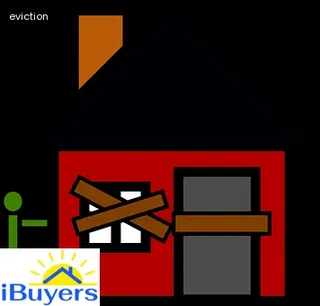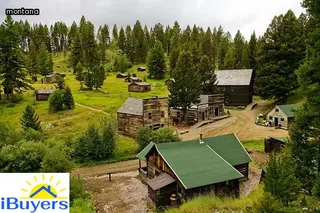Squatting laws in Montana provide legal protection to individuals occupying land without permission from the owner. Squatters rights in Montana are based on the principle of adverse possession, which is a common law doctrine that allows someone who is continuously using another person’s property for a period of time to have a right to claim ownership of the property.
In order to successfully claim adverse possession, five elements must be met: actual and visible occupancy; an open and notorious occupancy; exclusive and continuous use; color of title; and the lack of permission from the original owner. Actual and visible occupancy means that the squatter must have taken physical control of the land and openly used it as their own for a period of time specified by law, typically between five and 10 years.
An open and notorious occupancy requires that there be no secrecy or hiddenness regarding use of the land so that it is obvious to any observer that it is being occupied. Exclusive use requires that only one individual may occupy a piece of land at any given time, whereas color of title requires some evidence or documentation proving ownership.
Lastly, lack of consent from the original owner is essential for successfully claiming adverse possession in Montana.

In Montana, a squatter must demonstrate both hostile and actual possession in order to establish rights through adverse possession. Hostile possession involves the intent to exclude others from the property, while actual possession requires that the squatter is actually occupying and using the land.
In order to prove hostile possession, the squatter must be able to demonstrate facts that support their claim that they are in exclusive control of the land and intend to keep others away. This could include improving or maintaining the land, paying taxes on it, posting no-trespassing signs or fencing off an area.
Actual possession requires that one has occupied and used the land as if they own it for a certain period of time. This period varies in length depending on whether a single person or multiple people are squatting on the same property.
If a single individual can prove both hostile and actual possession for five years, they may be able to obtain title to the property through adverse possession laws in Montana.
In Montana, proving open and notorious possession as part of an adverse possession claim requires a few key elements. Firstly, the squatters must be in possession of the property for at least five years in order to establish their rights.
This means that each year, the squatter must demonstrate visible acts of ownership such as planting a garden or building fences to make the boundaries of their new home clear. Secondly, they must prove that the possession is open and notorious to the public by paying taxes on the property or publicly announcing their ownership through local media or other channels.
Finally, they must show a good faith belief that they are using someone else's land as if it were their own, without seeking permission from the owner beforehand. Taken together, these three elements form the basis for an effective claim of adverse possession in Montana.

When it comes to understanding squatters rights in Montana, exclusive possession plays a major role in determining the outcomes of adverse possession cases. To establish a claim of adverse possession, a squatter must demonstrate that they have exclusive possession of the property for five consecutive years or more.
This means that the squatter must prove that they had exclusive use and control of the land throughout this period and that no one else was using it during that time. Additionally, if the squatter has made some form of investment in improving the property, such as by constructing buildings on it, then this can also strengthen their claim to exclusive possession.
In order for a squatter's claim to be successful, they must meet all applicable legal requirements and provide sufficient evidence demonstrating their exclusive occupation of the property over an extended period of time.
Squatting is a complicated legal matter in Montana, and it’s important for potential squatters to understand the impact of continuous possession on their claims. In order for an adverse possession claim to be successful, the squatter must prove that they have had possession of the land with intent for a period of five years or longer.
The possession must also be continuous, meaning that it can’t be interrupted by another party for any length of time. Furthermore, squatters must provide evidence that they are using the property as if it is their own, such as paying taxes or making improvements to the land.
Lastly, the squatter must demonstrate good faith by notifying all previous owners and occupants that they are living there and paying them a reasonable amount of rent when possible. Although these laws are in place to protect property owners from squatting, understanding them is key to ensuring a successful claim in Montana.

When it comes to understanding the rights of squatters in Montana, knowledge of the Color of Title Doctrine is important. The doctrine is a common law principle that applies when a possessor of land has some sort of document or evidence that demonstrates their legal claim to the property.
In Montana, this generally means that if a squatter has documents such as tax receipts or deeds, they may be able to legally claim the property. If there is no document present, then the squatter must fulfill certain specific requirements under adverse possession laws in order to obtain legal title.
These requirements include paying taxes on the property for an uninterrupted period of at least five years and openly occupying and using it as if it were their own. Understanding these rules and regulations is essential for anyone seeking to establish a valid claim to any piece of real estate in Montana.
It is essential for property owners in Montana to understand their rights and strategies when it comes to dealing with squatters. Luckily, the law provides certain protections for landowners, but also requires them to take certain precautions in order to avoid legal liability.
It is important that landowners clearly mark their property boundaries, as well as post visible "No Trespassing" signs. Additionally, they should be sure to regularly check their land for any evidence of squatting activity and take swift action if they notice anyone living on or using their property without permission.
Landowners can also file a complaint with the police department if they find that squatters have unlawfully taken possession of their land. The most effective way of avoiding liability from squatters in Montana is to stay informed about state laws regarding adverse possession and act quickly if squatters are found on your property.

Adverse Possession in Montana is a legal concept that allows individuals to acquire ownership over a piece of land through living on it and using it for a certain number of years. In order to qualify for Adverse Possession in Montana, an individual must have had possession of the property for at least five years, uninterrupted by the original owner.
Additionally, the squatter must have paid all taxes due on the property during this time period and have openly used the property as their own. Adverse Possession can be applied to both real estate and personal property in Montana, but only if all conditions are met according to state laws.
Furthermore, it is also important to note that adverse possession does not apply to Native American lands or any properties owned by local or federal governments. Understanding these facts about Adverse Possession in Montana can help individuals understand their rights when dealing with squatters on their land or when attempting to assert ownership over vacant property.
In Montana, understanding the statutory provisions surrounding squatters rights is essential for anyone considering an adverse possession claim. In order to meet the requirements for an adverse possession claim in Montana, a person must use the land exclusively and openly for a continuous period of at least five years without permission from the legal property owner.
The use of the land must be obvious, exclusive, and hostile to any other claims that may exist. Additionally, taxes must be paid on the property for at least three years during this time period to create a presumption that there was knowledge of ownership.
If all these criteria are met then it is possible to file an adverse possession claim in Montana court. Failing to understand these conditions can lead to potential legal complications down the road.
Therefore, it is important to gain an understanding of the statutory provisions surrounding squatters rights before attempting an adverse possession claim in Montana.

In Montana, a squatter may be able to claim ownership of property through the doctrine of adverse possession. One way to gain title to real estate is by color of title, which requires a squatter to prove he or she had a good faith belief that they were the owner of the land.
This can be done by producing a deed or other document purporting to transfer title from the rightful owner. Generally, this must be done without knowledge that any defects exist in the document; for example, if it was forged or not properly recorded with the county clerk and recorder's office.
Additionally, an open and notorious possession of the land must have occurred for at least five years before filing a lawsuit in order to claim title. In order for an adverse possession claim to be successful under color of title, all elements must be met in order for a court to grant ownership of the disputed property.
Yes, Montana does have an adverse possession law. Adverse possession laws in Montana allow someone who has possessed a piece of land for a long enough period of time—usually five or more years—to gain legal title to that property.
This process is sometimes referred to as “squatter’s rights” and occurs when someone occupies a property without any legal right or permission from the rightful owner. In order for the squatter to gain ownership of the property, they must show that they have had open, notorious, hostile, exclusive and continuous possession of the land for at least five years.
If these conditions are met, title to the land is transferred from the original owner to the squatting party. It is important for individuals in Montana to understand their rights under adverse possession laws in order to protect themselves if their property is ever taken over by another party without their consent.

The shortest time for squatters rights in Montana is 10 years. In order to gain possession of a property through adverse possession, one must occupy and use the land as their own for a continuous period of at least 10 years.
The squatter must also demonstrate that they have made reasonable efforts to keep the property safe and secure, such as by paying taxes on the land or making repairs to any existing structures. During this period, the squatter must also use the land without permission from the rightful owner and without paying rent or other compensation.
If all these conditions are met, then the squatter may be able to claim title to the property after 10 years. Ultimately, understanding squatters rights in Montana requires being aware of how long a person needs to continuously occupy a property before they can gain legal ownership of it through adverse possession laws.
Adverse possession is a legal concept in Montana whereby a person who is not the legal owner of a piece of land can, through prolonged use and occupation of the land, become its rightful owner. This concept is often referred to as squatter's rights.
In order to gain adverse possession of real estate in Montana, certain elements must be present. The squatter must have an open, notorious, hostile and exclusive possession of the land for a period which exceeds 10 years under state law.
An actual claim of title or color of title to the property is also required in most cases. Color of title includes documents such as tax receipts or other written instruments that appear to grant ownership even though they are invalid or defective.
In Montana, a person claiming adverse possession must also pay all taxes on the property during the time they possess it. The court will also consider whether any improvements were made to the property over time by the squatter when determining if adverse possession has been established.
Understanding these key elements can help individuals determine their rights if they believe they may have acquired adverse possession of land in Montana.
In Montana, the shortest time for adverse possession is seven years. If a squatter has lived on the land for seven continuous years and paid all property taxes due during that period, they may be able to claim ownership of that land under adverse possession laws in Montana.
It's important to note that even if the seven-year requirement is satisfied, there are other requirements that must also be met in order to successfully claim ownership of a property through adverse possession. These include proving actual occupancy and paying any associated taxes or fees, as well as having an open and notorious occupation of the property.
Additionally, it is necessary to show that no permission was given by the legal owner of the property during this period. If all of these requirements are met, then the squatter will have fulfilled their obligation under Montana's Adverse Possession laws and can potentially gain legal title to the land in question.